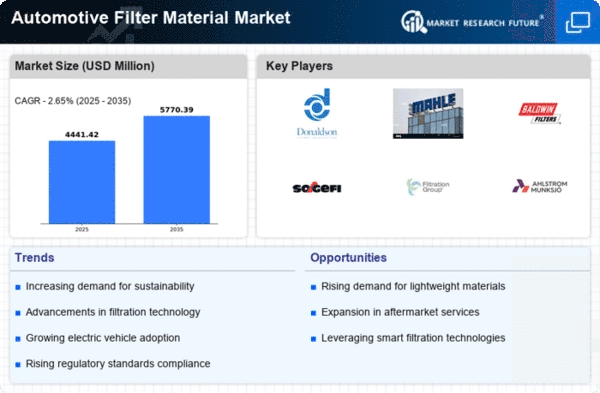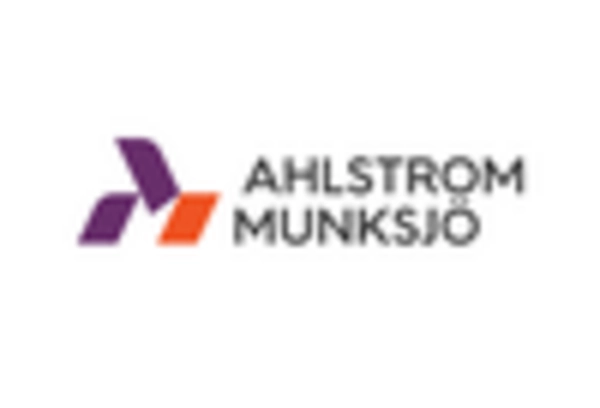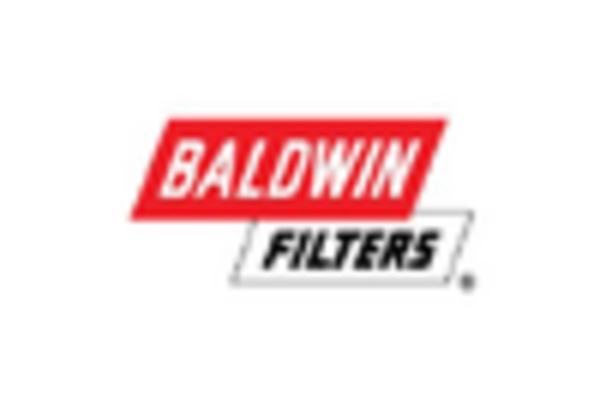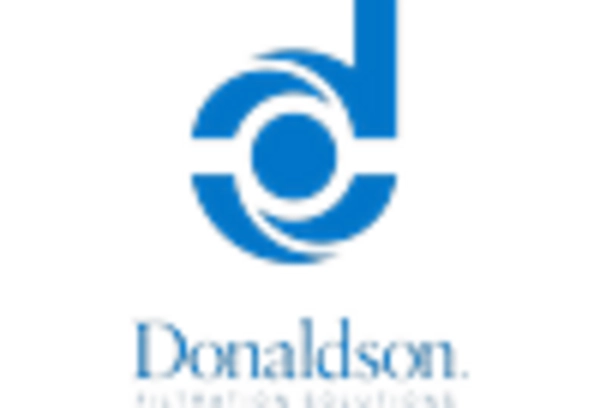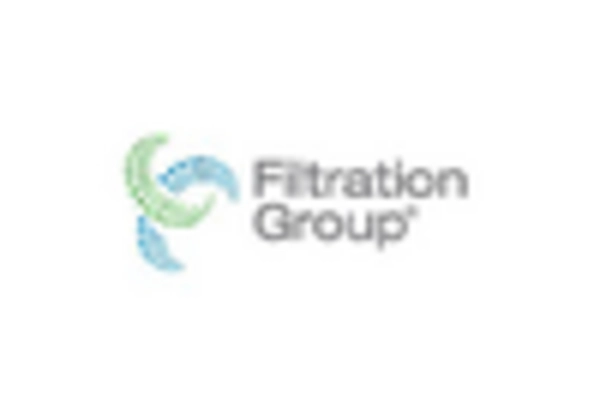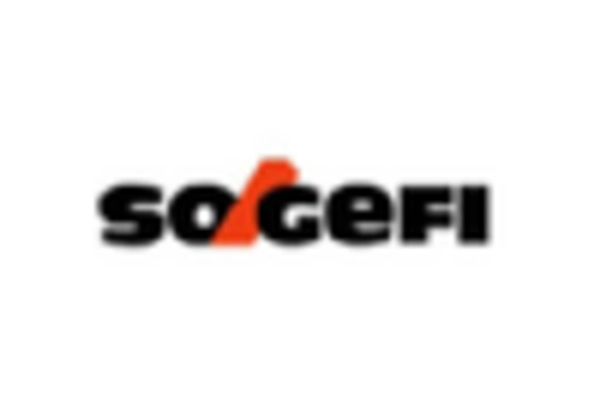Rising Vehicle Production
The Global Automotive Filter Material Market Industry experiences growth driven by the increasing production of vehicles worldwide. As manufacturers ramp up output to meet consumer demand, the need for high-quality filter materials becomes paramount. In 2024, the market is projected to reach 4.33 USD Billion, reflecting the industry's response to the growing automotive sector. This surge in production necessitates advanced filtration solutions to ensure optimal engine performance and compliance with stringent emissions regulations. Consequently, the demand for innovative filter materials is likely to rise, positioning the market for sustained growth in the coming years.
Expansion of Electric Vehicles
The Global Automotive Filter Material Market Industry is also impacted by the expansion of electric vehicles (EVs). As the automotive landscape shifts towards electrification, the demand for specialized filter materials tailored for EV applications is emerging. While traditional combustion engines require specific filtration solutions, electric vehicles necessitate different materials to manage battery cooling and air filtration. This transition presents both challenges and opportunities for the market. The ongoing development of EVs is likely to drive innovation in filter materials, ensuring that the industry adapts to the evolving needs of the automotive sector.
Stringent Emission Regulations
The Global Automotive Filter Material Market Industry is significantly influenced by the implementation of stringent emission regulations across various regions. Governments are increasingly mandating lower emissions from vehicles, prompting manufacturers to adopt advanced filtration technologies. These regulations not only enhance air quality but also drive the demand for high-performance filter materials. As a result, the market is expected to grow steadily, with projections indicating a value of 5.77 USD Billion by 2035. This regulatory environment compels automotive manufacturers to invest in superior filter materials, thereby fostering innovation and expanding the market landscape.
Growing Awareness of Vehicle Maintenance
The Global Automotive Filter Material Market Industry benefits from the growing awareness among consumers regarding vehicle maintenance. As vehicle owners become more informed about the importance of regular maintenance, the demand for high-quality filter materials increases. This trend is particularly evident in regions with a rising middle class, where vehicle ownership is on the rise. Consumers are more likely to invest in premium filter materials to ensure optimal vehicle performance and longevity. This shift in consumer behavior is expected to contribute positively to the market, reinforcing the need for reliable and efficient automotive filter solutions.
Technological Advancements in Filtration
Technological advancements play a crucial role in shaping the Global Automotive Filter Material Market Industry. Innovations in materials science and engineering have led to the development of more efficient and durable filter materials. These advancements enhance the performance of automotive filters, contributing to improved fuel efficiency and reduced emissions. As the automotive sector increasingly embraces these technologies, the market is poised for growth. The anticipated compound annual growth rate (CAGR) of 2.64% from 2025 to 2035 underscores the potential for ongoing innovation and the introduction of cutting-edge filtration solutions in the industry.


